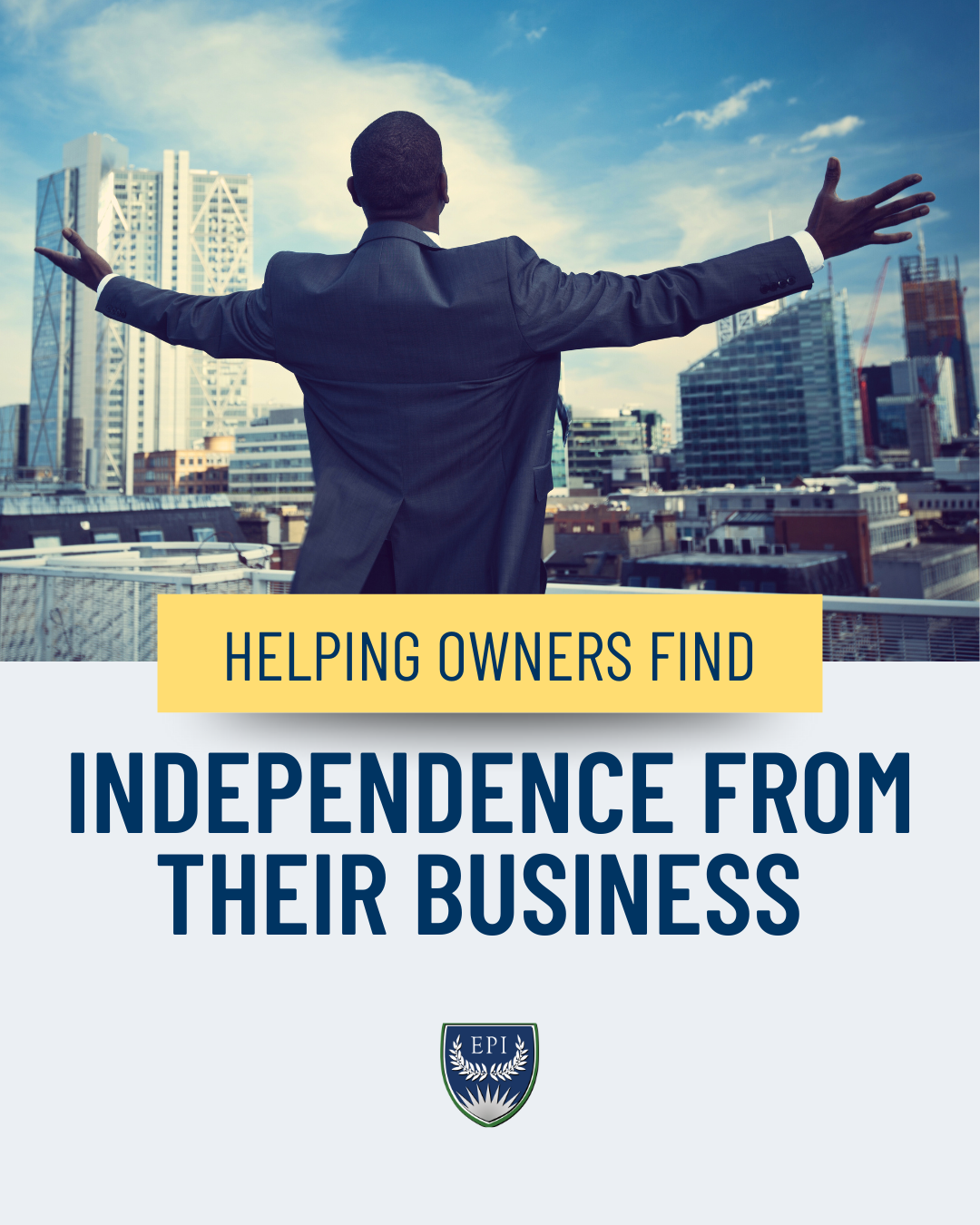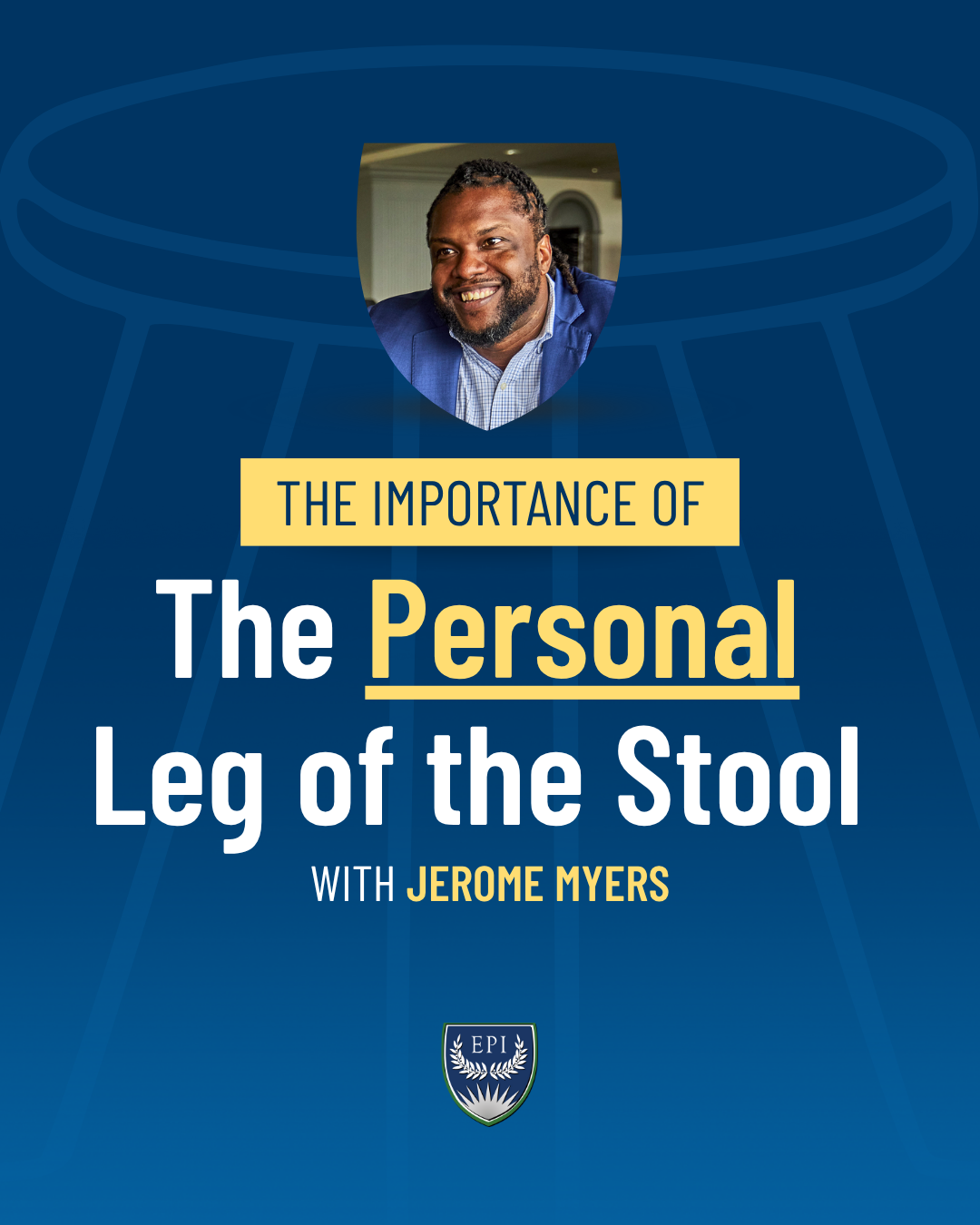
THE EXIT PLANNING BLOG
Keep up-to-date with exit planning, succession planning, industry trends, unique specialty insights, and useful content for professional advisors and business owners.
Share this
Helping Owners Find Independence from Their Business
by Kellie Nock on July 3, 2025

The Value of Independence for Business Owners
Sparklers hissing, fireworks fizzing, and hot dogs sizzling: all acting as the summer soundtrack to the American holiday celebrating independence. The Fourth of July is the perfect opportunity to relax, enjoy, and reflect on our own personal freedoms, which is especially relevant for business owners at any stage in their ownership journey.
Business owners can often be entrenched in their company's daily operations, wearing many hats and acting in many different roles. It makes sense; after all, the business is frequently their life’s work and their most valuable asset. Because of this deep involvement, owners might resist the idea of decentralizing or delegating responsibilities, fearing they will lose control or hinder the company's success. However, modern insights suggest that decentralization can actually lead to greater business value and sustainability. When owners delegate effectively, they enable others in the organization to contribute and grow, fostering innovation and efficiency.
Expanding on this idea, decentralization also prepares the business for future growth and succession planning. It helps create a resilient organization operating smoothly even if the owner steps back or faces unforeseen circumstances (like the dreaded 5Ds). For business owners, understanding that the independence they cherish in their personal lives can be mirrored in their business practices is empowering. It allows them to enjoy their entrepreneurial journey more fully and build a legacy that outlives their individual involvement. As we celebrate independence this Fourth of July, it’s a fitting reminder for owners to consider how embracing decentralization can free them to focus on strategic vision and personal pursuits while increasing their business’s value and stability.
Let Freedom Ring
Decentralization offers owners a pathway to a more fulfilling post-exit life by aligning value more closely with the business itself, rather than solely with the owner. This shift facilitates a smoother transition after exit and is a fundamental element in the de-risking process within the "Prepare" gate of the Value Acceleration Methodology™. By decentralizing decision-making and authority, a business enhances its health across all four key intangible capitals: Customer, Social, Structural, and Human.
The benefits of decentralization particularly shine in Social and Human capital areas. When owners decentralize, they inherently foster an environment where the right people are empowered to take on leadership roles and occupy the right seats within the organization. This dynamic creates a culture of opportunity where employees see clear avenues for personal growth and leadership development. As a result, employee engagement increases, retention improves, and turnover diminishes.
As leadership capabilities and confidence develop internally, the organization as a whole becomes stronger and more resilient. Employees tend to be happier and more committed when they feel valued and see a viable future within the company. These positive shifts in Social and Human capital set off a domino effect, leading to Structural and Customer capital improvements. A company that invests in its people and decentralizes authority cultivates a robust, adaptive, and value-focused organization, excelling across all four intangible capitals and positioning itself for sustained significance.
How to Find Your Freedom
So, how can a Certified Exit Planning Advisor (CEPA®) help take these steps to enable the business owner to decentralize themself? Well, it may seem obvious, but the first step is defining the owner’s future goals. These goals aren’t simply for the business, but they also urge the owner to look at all Three Legs of the Stool, which means looking at the business, financial, and personal goals. From there, they can identify the owner’s Wealth Gap or, the difference between the wealth that they currently have and the wealth that they will need to achieve their post-exit goals.
With goals in mind, the CEPA and the owner’s team can then identify the best players on the team to take on certain responsibilities. This step, when done with the owner’s input and openness, allows the delegation of key responsibilities and frees up the owner’s time and energy while maintaining the peace of mind that their company is in good hands. An advisory board can be a huge boon to owners who are looking for additional, trusted input on the future of the company.
While it may not be as flashy as fireworks, a business owner’s personal independence and decentralization from the business is key for growing value and exiting on their own terms, on their own time.
Related Resources
Share this
- Blog (548)
- CEPA (431)
- exit planning (249)
- CEPA community (188)
- Business Owner (175)
- Exit Planning Summit (99)
- EPI Chapter Network (89)
- Value Acceleration Methodology (81)
- Exit Planning Partner Network (76)
- EPI Announcement (50)
- Content (48)
- Webinars (37)
- Excellence in Exit Planning Awards (34)
- Marketing (30)
- 2024 Exit Planning Summit (28)
- 5 Stages of Value Maturity (26)
- Books (24)
- EPI Academy (24)
- EPI Team (22)
- Exit Planning Teams (22)
- Leadership (21)
- 2023 Exit Planning Summit (20)
- family business (20)
- women in business (19)
- Intangible Capital (18)
- Exit Options (17)
- Black Friday (16)
- CPA (15)
- Walking to Destiny (15)
- Chapters (14)
- State of Owner Readiness (14)
- charitable intent (13)
- Chris Snider (12)
- National Accounts (12)
- Small business (12)
- personal planning (12)
- Financial Advisors (11)
- Season of Deals (9)
- 5 Ds (8)
- About us (8)
- Podcast (8)
- Scott Snider (8)
- Insiders Bash (7)
- Christmas (6)
- Exit Planning Content Library (6)
- Case Studies (5)
- Owner Roundtables (5)
- Three Legs of the Stool (5)
- Value Advisors (5)
- financial planning (5)
- Awards (4)
- Circle of Excellence (4)
- EPI Thought Leadership Council (4)
- Exit & Succession (4)
- Five Ds (4)
- executive training (4)
- DriveValue (3)
- Owners Forum (3)
- author (3)
- forbes (3)
- Exit Is Now Podcast (2)
- Peter Christman (2)
- Veteran (2)
- Whitepapers (2)
- Annual Exit (1)
- Business Owners Forum (1)
- SOOR (1)
- business consultants (1)
Subscribe by email
RELATED ARTICLES






